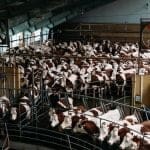Factory farming has become the norm in the food industry, providing a cheap and efficient way of producing meat and dairy products at mass quantities. However, this method of farming has raised serious concerns about the impact on our health. The way animals are raised in these facilities, confined to small spaces and pumped with antibiotics and growth hormones, has resulted in the development of dangerous health risks for consumers. In this blog post, we will delve into the detrimental effects of consuming meat and dairy products from factory farms.
The negative impact of factory farming on human health has been a topic of discussion among health professionals and animal rights activists for years. The use of antibiotics in animals has led to an increase in antibiotic-resistant bacteria, posing a serious threat to public health. Moreover, growth hormones used to speed up animal growth have been linked to early onset puberty, breast cancer, and prostate cancer in humans.
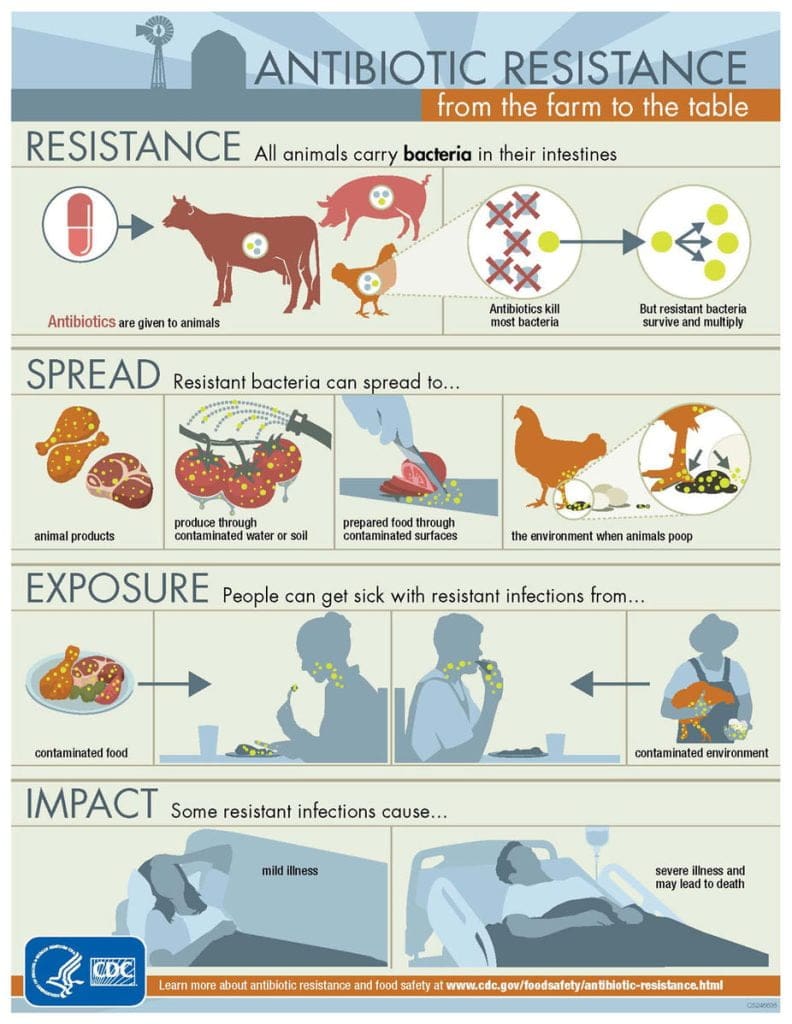
1. Antibiotic resistance is a concern.
Antibiotic resistance is a growing concern in the world of healthcare and public health due to the overuse of antibiotics in agriculture, particularly in factory farming. Antibiotics are often given to animals in feed or water to prevent disease, but this practice can lead to the development of antibiotic-resistant bacteria that can be harmful to humans. These resistant bacteria can be spread to humans through the consumption of meat and dairy products, as well as through contact with contaminated environmental sources. Therefore, it is important to address the issue of antibiotic overuse in factory farming in order to preserve the effectiveness of antibiotics in treating human illnesses and protecting public health.
2. Factory farming degrades the environment.
Factory farming is a system of raising livestock in confined spaces for the purpose of maximizing production and profit. Unfortunately, this method of farming poses a significant threat to the environment. From the massive amounts of waste produced by the animals to the pollution caused by the transportation and processing of their products, factory farming is a major contributor to environmental degradation. The extensive use of chemicals, fertilizers, and pesticides also has a negative impact on soil and water quality. Additionally, the practice of clearing land for factory farms leads to deforestation and loss of biodiversity. These harmful effects on the environment should be a major concern for anyone who values sustainability and the health of our planet.
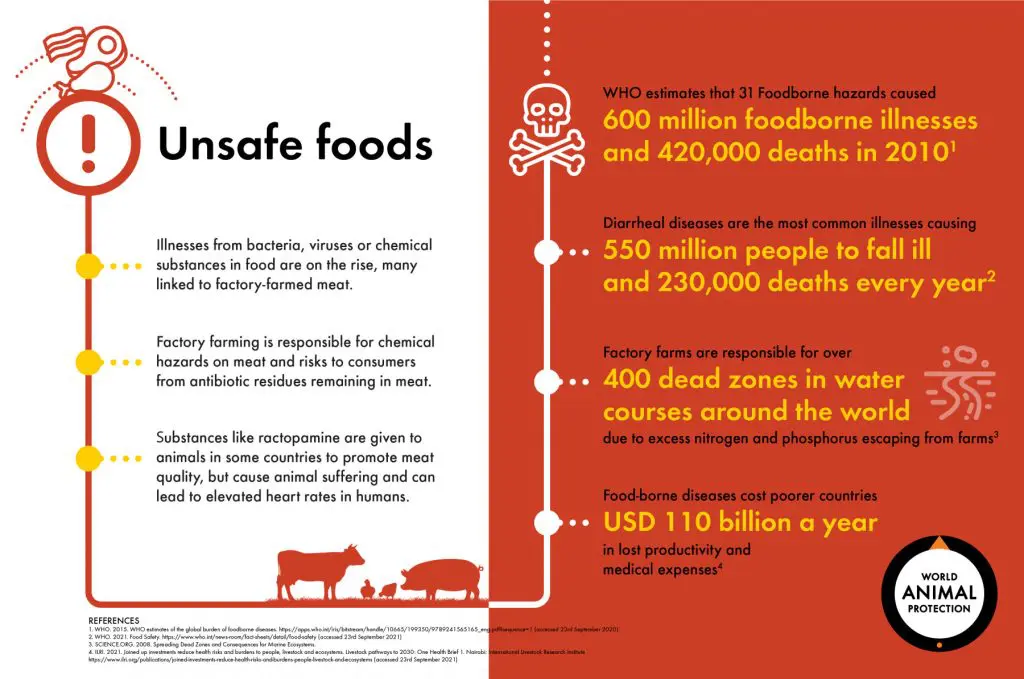
3. Hormone use in animals.
The use of hormones in animals is a common practice in factory farming. Hormones are used to increase the growth rate and weight of animals, thus increasing profits for the industry. However, the use of hormones in animals can have negative impacts on human health. Hormones can disrupt the endocrine system, leading to a variety of health problems such as early puberty in girls, infertility, and even certain types of cancer. In addition, the use of hormones in animals can lead to antibiotic resistance, as these drugs are often used in combination with hormones. It is important for consumers to be aware of the potential risks associated with consuming meat and dairy products from animals that have been treated with hormones, and to consider alternative sources of protein to protect their health.
4. The potential for foodborne illnesses.
Factory farming is a common practice in the meat and dairy industry that has brought about numerous concerns regarding public health. One of the most significant issues is the potential for foodborne illnesses resulting from consuming animal products originating from factory farms. Animals raised in such environments are often subjected to overcrowding, poor sanitation, and inadequate nutrition, making them more susceptible to infections and diseases. As a result, they may harbor dangerous pathogens like E. coli, Salmonella, and Campylobacter, which can contaminate meat, milk, and other animal products. Consuming contaminated animal products can lead to a range of foodborne illnesses, from mild gastroenteritis to severe cases that require hospitalization. It is, therefore, crucial for consumers to be aware of the risks associated with factory farming and to consider alternative sources of protein to safeguard their health.
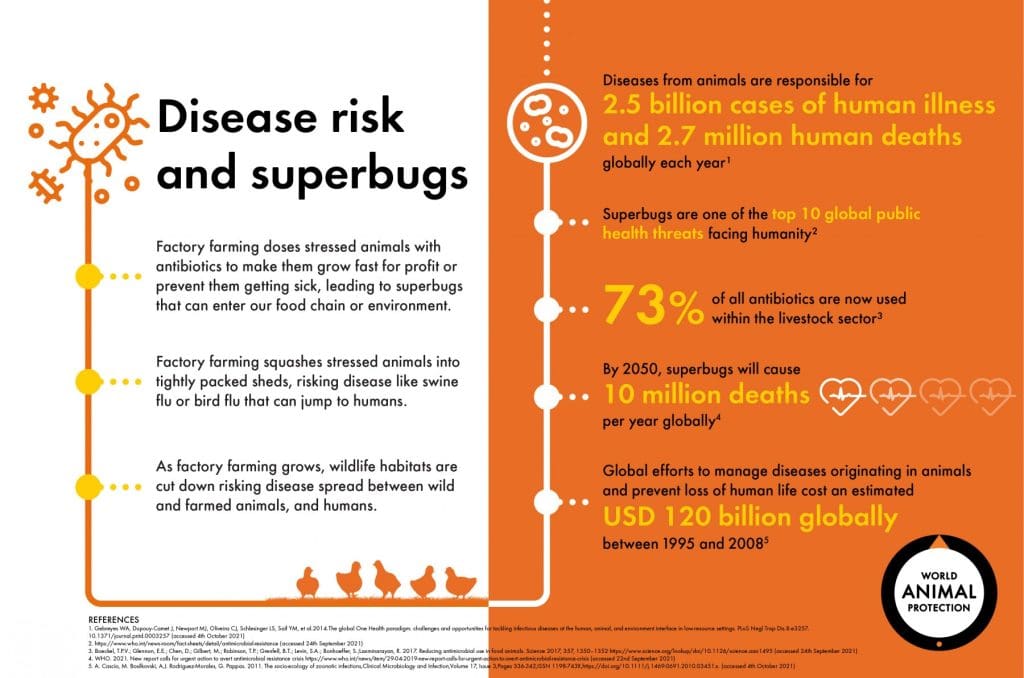
5. Negative effects on animal welfare.
One of the most concerning aspects of factory farming is the negative effects it has on animal welfare. Factory farm animals are often subjected to inhumane living conditions, including overcrowding, lack of access to fresh food and water, and limited space to move around. Animals are often kept in cramped cages or pens, which can lead to health issues such as infections and disease. In addition, factory farming often involves the use of growth hormones and antibiotics, which can have negative effects on the animals’ health and overall well-being. The mistreatment of animals in factory farms not only raises ethical concerns but also poses a risk to human health by potentially increasing the spread of diseases and infections.
6. Industrial farming and biodiversity.
Industrial farming, also known as factory farming, has significant impacts on biodiversity. The reliance on monoculture crops for animal feed, such as corn and soybeans, has resulted in the loss of habitat for many native species. Additionally, the use of pesticides and herbicides in industrial farming has contributed to the decline of pollinators such as bees and butterflies, which are crucial for maintaining biodiversity. The practices used in factory farming also contribute to the spread of disease among animals, which can lead to the loss of entire populations. As a result, it is essential to consider the impact of our food choices on biodiversity and to explore more sustainable and ethical alternatives to industrial farming.
7. The impact on local communities.
Factory farming has a significant impact on local communities. These operations often lead to the destruction of small family farms and the consolidation of agricultural production into the hands of a few large corporations. This consolidation has contributed to the decline of rural communities, as jobs and economic opportunities are lost. Factory farms also produce enormous amounts of waste, which can contaminate nearby water sources and air, affecting the health and well-being of those living in the area. Furthermore, the use of antibiotics in factory farming can lead to the development of antibiotic-resistant bacteria, which can spread beyond the farm and into the community. The impact of factory farming on local communities highlights the need for more sustainable and ethical food production practices.
8. The true cost of cheap meat.
In recent years, the true cost of cheap meat has come to light, and it is a cost that extends beyond just the price tag at the grocery store. Factory farming, which produces the majority of meat and dairy products consumed today, has serious implications for both human health and the environment. The overuse of antibiotics in animal feed has led to the rise of antibiotic-resistant bacteria, which poses a significant threat to public health. Additionally, factory farming practices have been linked to air and water pollution, deforestation, and climate change. As consumers, it is important to consider the true cost of cheap meat and make informed decisions about the meat and dairy products we choose to consume.
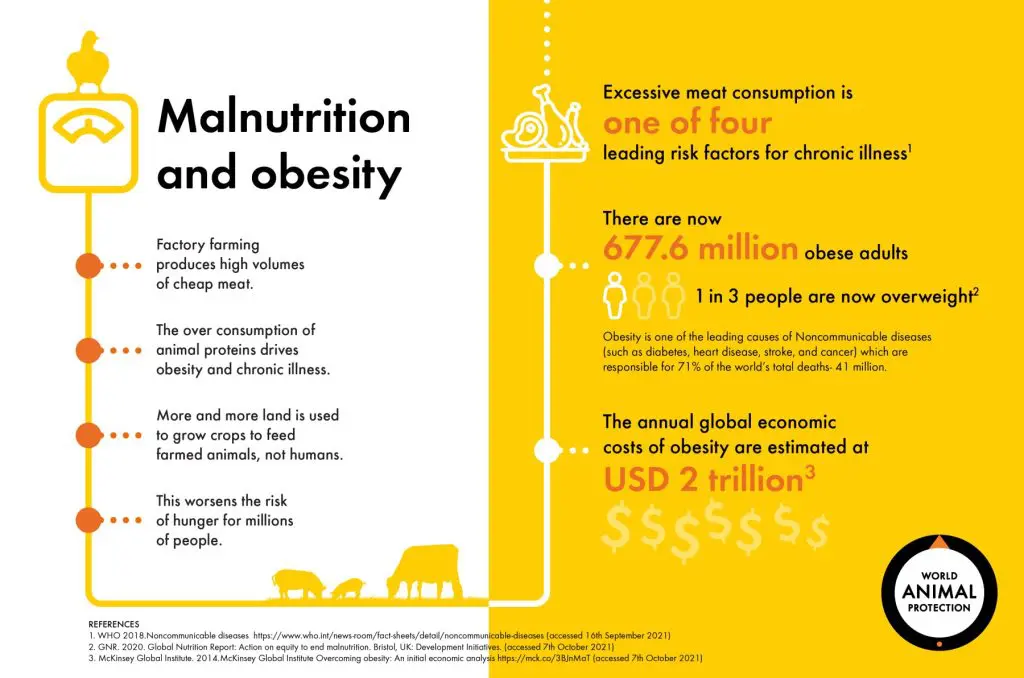
9. The ethics of factory farming.
The ethics of factory farming have become a topic of widespread concern among health-conscious consumers. The industrialization of agriculture has led to a system that prioritizes profit over animal welfare, environmental sustainability, and public health. Factory farms are often overcrowded, unsanitary, and cruel to animals, leading to their physical and psychological suffering. The use of antibiotics to promote growth and prevent disease in animals has contributed to the rise of antibiotic-resistant bacteria, which pose a threat to human health. Furthermore, factory farming practices have a detrimental impact on the environment, from the pollution of waterways to the release of greenhouse gases. As consumers become more aware of these issues, they are choosing to support ethical and sustainable farming practices by reducing their consumption of meat and dairy or seeking out products from small-scale, humane farms.
10. Solutions for a sustainable future.
To ensure a sustainable future, it is important to address the environmental and health impacts of factory farming. One solution is to adopt a plant-based diet, which has been shown to have a lower carbon footprint and reduce the risk of chronic diseases. Additionally, supporting sustainable farming practices such as regenerative agriculture and agroforestry can help reduce greenhouse gas emissions and promote biodiversity. Another solution is to reduce food waste by consuming only what is needed and composting leftover food scraps. Investing in renewable energy and promoting sustainable transportation can also contribute to a greener future. By taking these steps, we can work towards a more sustainable future for ourselves and future generations.
In conclusion, the dangers of consuming meat and dairy products from factory farming cannot be ignored. The health consequences for both humans and animals are significant, with the potential for the spread of infections, antibiotic resistance, and environmental damage. It is important to educate ourselves on the sources of our food and to consider alternative options such as plant-based diets or sourcing from local, sustainable farms. We all have a role to play in creating a healthier and more sustainable food system, and it starts with making informed choices about the food we eat.


